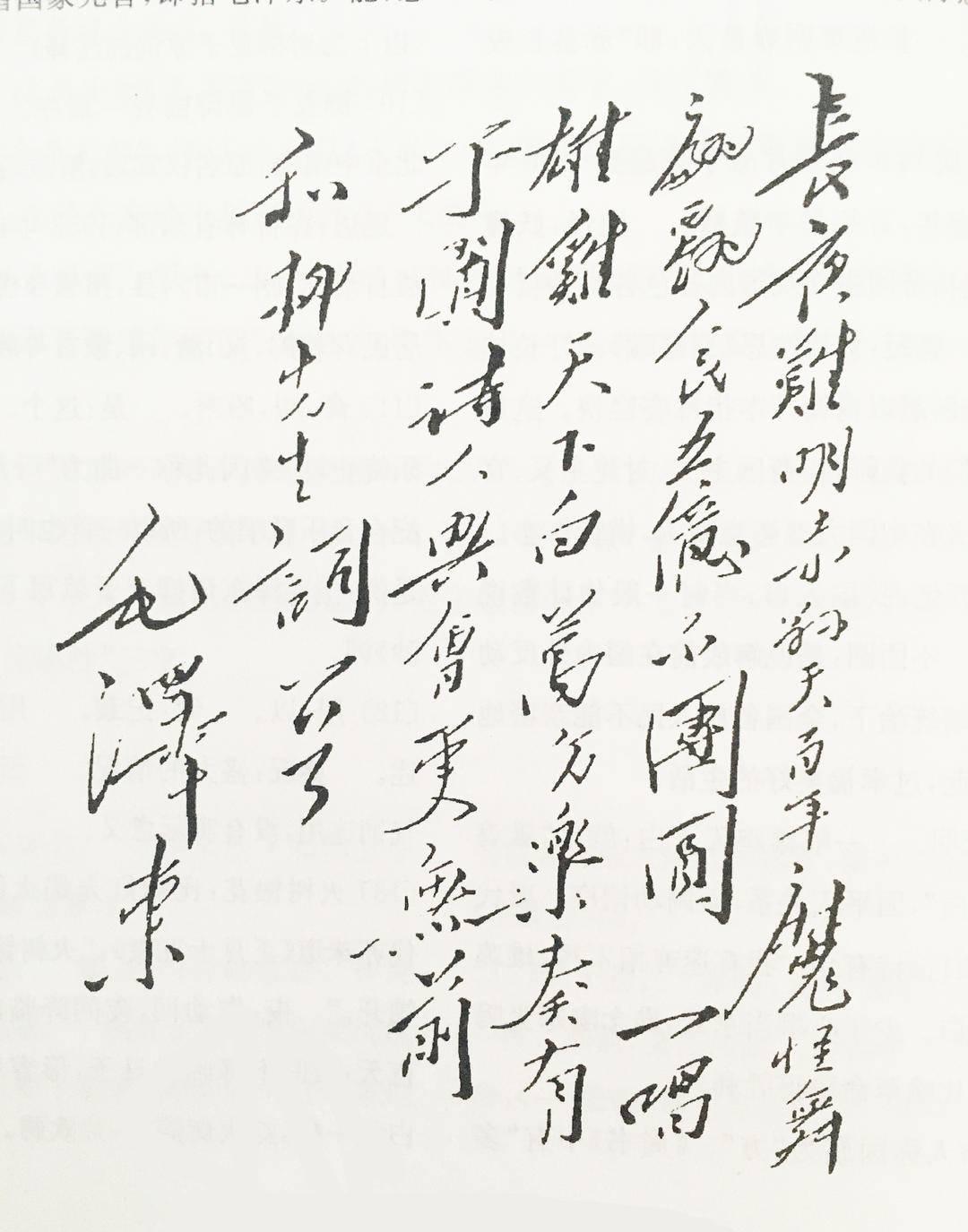October 1 is National Day. Every year at this time, it is reminiscent of the founding ceremony.
Perhaps because he was too busy, the poet Mao Zedong did not write a poem on this day. But on the following National Day, Mao Zedong either sang harmony or revised verses for others, leaving several poems and stories related to the National Day.

Mr. Raccoon And Mr. Ryoko
Mao Zedong
The long night is difficult to mingchi county, the hundred years of demons dancing, the people of half a billion are not reunited.
A singing rooster is white, the music of all sides is in Khotan, and the poet will be even more forward.
It is a poem by Mao Zedong and Liu Yazi, written during the National Day in 1950. At that time, Mao Zedong and Liu Yazi attended a party together. Excited, Mao Zedong invited Liu Yazi to fill in the words impromptu. Liu Yazi filled in a song "Huan Xi Sha":
The fire tree and honeysuckle do not sleep, the brothers and sisters dance, and the songs are sung through the moon.
Not one person can lead, then allow the hundred tribes to join Khotan? The good night event is unprecedented.
The next day, Mao Zedong took the original rhyme and gave the word to Liu Yazi.
The song is quite well sung. The first half of it writes about the situation in China from 1840 to 1948, "a hundred years of demonic dancing"; the second half writes that the revolution was victorious, and the people of all nationalities were united to celebrate the National Day. "A singing rooster is white in the world", heroic and romantic, has become a famous sentence that has been sung to this day.
A collection of Hu Qiaomu's poems
In October 1964, Hu Qiaomu wrote a group of words, including "Six States Song Head • National Day" and "Water Tune Song Head • National Day Night Chronicle". This is Hu Qiaomu's first-time learning of old style poems. In late October, he sent 13 compositions (including these two) from Hangzhou to Mao Zedong for revision. After receiving it, Mao Zedong "played and deliberated all day", repeatedly revised it, and then sent it to the People's Literature for publication.
Six States Song Head · National Day
Hu Qiaomu
Vast continent, looking back at thousands of winters. The people are called diligent and courageous, and they are very good at god. It's dusty! The night is always cold. Heroes, free dreams, righteous rods, angry blood. Poor. Suddenly zhen spring thunder, Marxism-Leninism sent to the end of the world. The Party unites workers and peasants. Ren Feng was terrified of the waves, and the whip shadow pointed to Changhong. Cave Tiger Pond Dragon, a day in the air.
Happy rivers and mountains, proud and indulgent; hammer and sickle, drawing pictures. Duo Kunzhong, six continents, driving a long wind, one sail. What is the thing that does evil, who rebels against the lawsuit, who sells relatives and friends, who throws himself into a fierce manner, who asks for grace, and who is flattering. Inhumane, the torch burns fiercely. Spring is everywhere. Try to climb the pole eye, the sky is half-empty battle flag red, the rising sun is fangdong.
The original title of this poem was "National Day in 1964", and Mao Zedong also changed it to "National Day".
Water tune song head National Day Night Chronicle
This night and night, the four seas are glorious. Ten miles on the Chang'an Road, the fire tree reflects the wind flag. Ten thousand hearts and flowers bloomed, and a wave of song went straight up, turning into a colorful star. The day is shy, and the moon is heavy.
Strangers, don't dance now, when do you want to? I am still young and young, and Dadan does not have to resign. The promised land of human faith, the world's hunger and cold hand in hand, the road ahead is doubtful? The Ten Thousand Miles Will Use Only a Suit.
The sentence "Ten Thousand Miles of Wind and Clouds, Only a Piece of Clothing" was changed by Mao Zedong, and Hu Qiaomu's original sentence was: Thousands of miles and thousands of pounds, no need to frown.
Hu Qiaomu had a good background in literature and served as Mao Zedong's secretary. In his spare time, he and Mao Zedong often discussed poetry and song.
For example, after the publication of Mao Zedong's poem "Butterfly Love Flower Answer to Li Shuyi", Hu Qiaomu believed that the word "Zeng" in the sentence "Overreporting the Earthly Zeng Fuhu" was inaccurate, so he wrote to Mao Zedong several times proposing to revise it. It was just that Mao Zedong did not listen to his advice.
Another example is that on June 30, 1958, after Mao Zedong wrote "Sending the Plague God", he wrote to Hu Qiaomu: "I can't sleep, I wrote two propaganda poems, which were written to kill schistosomiasis." ...... Killing schistosomiasis is a vicious battle. In the poem, sitting on the ground, surveying the sky, red rain, three rivers and the like, some people may not understand it, you can ignore him. After a while, you may have to explain a little. ”
Although Hu Qiaomu was proficient in poetry appreciation, he really learned to write old style poems until 1964, when he was recuperating in Hangzhou. Therefore, some people later rumored that some of Mao Zedong's poetic works, such as "Qinyuan Spring and Snow", were ghostwritten by Hu Qiaomu, but they were completely unaware of the situation. More than a decade ago, Hu Qiaomu's secretary Li Hong also debunked rumors specifically for this purpose.
Perhaps he had such a poetic fate with Mao Zedong, and by the 1980s, Hu Qiaomu had also compiled a "Selected Poems of Mao Zedong", which was an indispensable book for the study of Mao Zedong's poetry.
Source: Purple Cow News